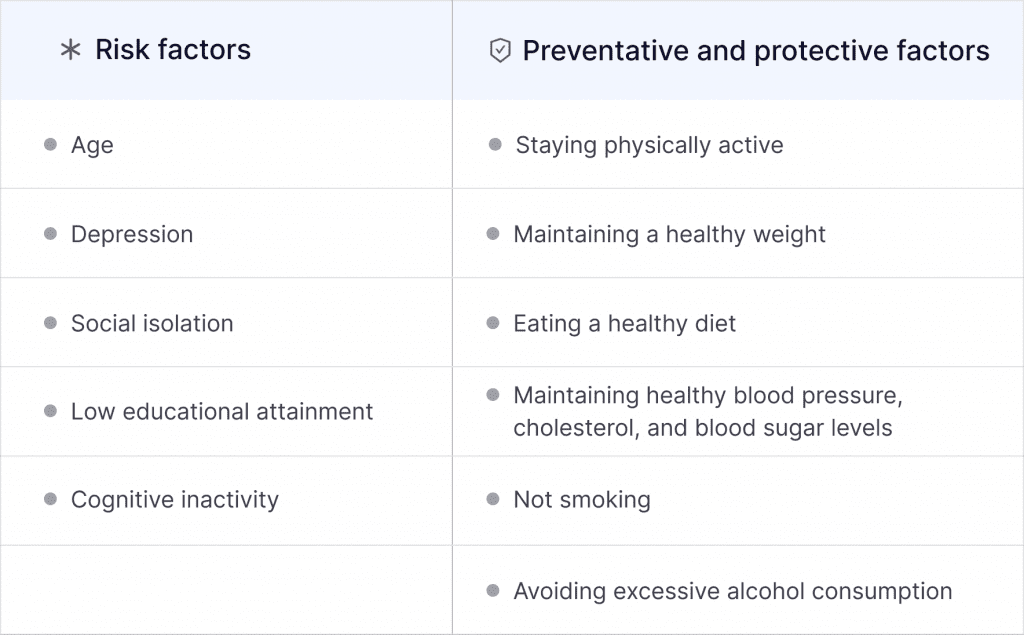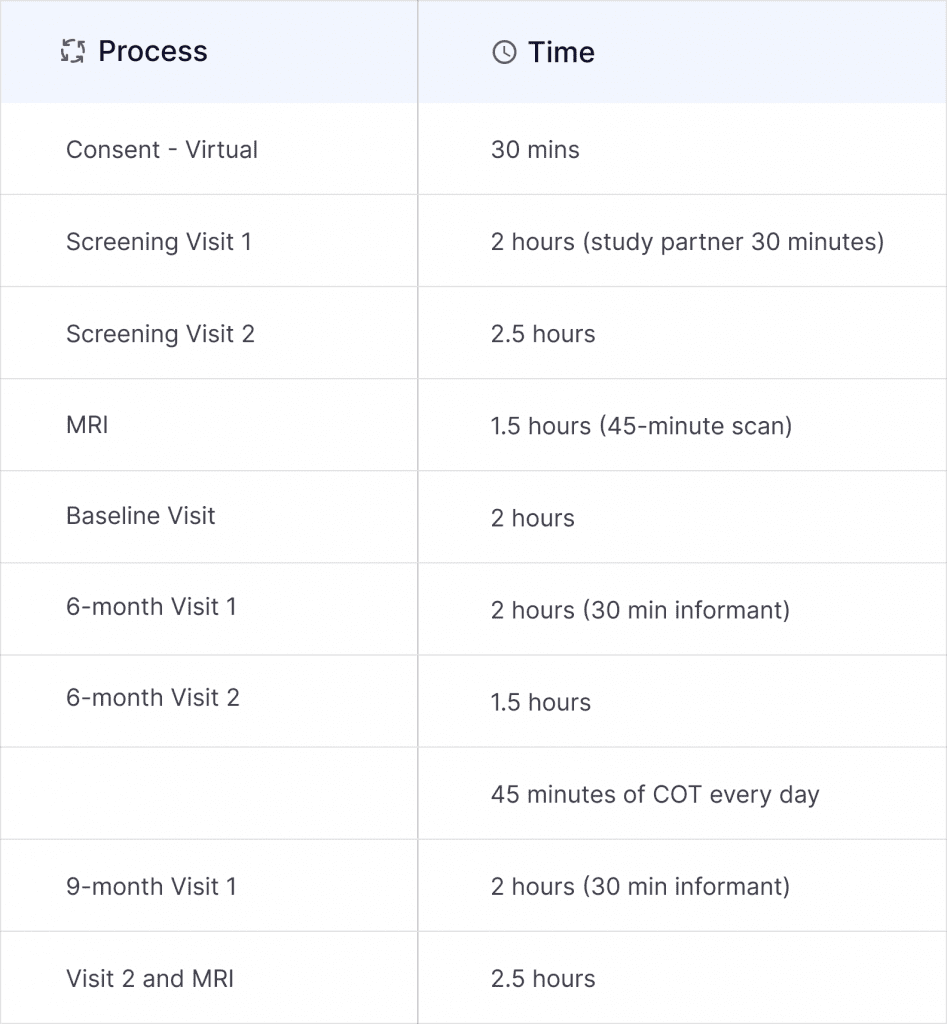
High levels of physical activity and maintaining a healthy weight have been shown to decrease the risk of cognitive decline and dementia. Why are these so important for maintaining a healthy brain? Physical activity and a healthy diet don’t just keep our bodies in good shape, the benefits extend to our brains as well. Blood pressure, cholesterol, and blood sugar levels significantly impact how our brain functions, and maintaining a healthy body is one of the best things you can do to optimize your brain’s health.
Olfactory Treatment
Currently, there is no treatment that can cure Alzheimer’s disease and other forms of dementia. Medicines and therapies targeting dementia have very limited efficacy, and most of the care for dementia is centered around early diagnosis and management of behavioral changes, optimizing physical, psychological, and cognitive health, and treating other medical conditions.
There are numerous new treatments being investigated, including COT.
Olfactory abilities show age-related decline due to both peripheral and central factors. However, a significant decline in olfactory abilities, beyond that seen due to normal aging, maybe a biomarker for impairment of cognitive function, such as Alzheimer’s disease. It has been shown that individuals diagnosed with Alzheimer’s disease exhibit impaired odor recognition and identification abilities. These changes in olfaction may occur prior to the appearance of disease symptoms.
Dysfunction of olfactory perception affects around 10% of people over the age of 65. In contrast, 85% of people with Alzheimer’s disease experience olfactory deficits.
Research has shown that olfactory training can improve depression, attention, memory, and language functions in patients with dementia.
Have you noticed changes in your memory?
Memory complaints occur in people with and without dementia or Alzheimer’s disease. For this reason, it can be difficult to know whether changes are due to normal aging or could be a sign of mild cognitive impairment.
Answering the questions below can give you a better sense of the memory issues you may have noticed. You may qualify for this study if you answer ‘yes’ to some or most of these questions. Please remember, that this is NOT a diagnostic tool. If you believe you may have early signs of dementia, consult your doctor for a diagnosis.
- Has your memory worsened in the past few years?
- Do you frequently forget appointments and important events?
- Do you frequently misplace personal items? (keys, wallet, purse, etc.)
- Do you have trouble remembering to take medications, or keeping track of medication schedules?
- Have people told you that you repeat the same thing (or story) or ask the same question several times in the same day?
- Have you gotten lost or disoriented in *familiar* places and settings?
- Have you lost interest in hobbies, games, crafts, or exercise (excluding physical limitations) that you previously enjoyed?
How do you know if you qualify?
If you are between the ages of 55 and 95 and have noticed a change in your memory, you may be eligible to participate.
All participants will receive
- Consultation with a specialist
- Complete cognitive assessment and memory tests
- Two complimentary brain scans before and after completion of the study.
- Compensation for participation
Exclusion Criteria
- Significant neurological disease other than mild cognitive impairment or early Alzheimer’s disease
- Major psychiatric disorder like schizophrenia or bipolar I disorder within the past 2 years
- Substance use disorder within the past 2 years
- Unstable medical condition
- Inability to receive an MRI scan
- Participation in Alzheimer’s clinical trials treatment with disease-modifying interventions in the past 6 months
- Currently taking antipsychotics, anticholinergics, anticonvulsants, benzodiazepines, or blood thinners, except for over-the-counter medications such as aspirin


2 Comments
Clyde Patillo
Hi there! Someone in my Facebook group shared this website with us so I came to look
it over. I’m definitely loving the information. I’m bookmarking and will be tweeting this to my
followers! Fantastic blog and terrific style
and design.
zoritoler imol
It’s actually a great and helpful piece of information. I am glad that you just shared this useful info with us. Please stay us informed like this. Thank you for sharing.